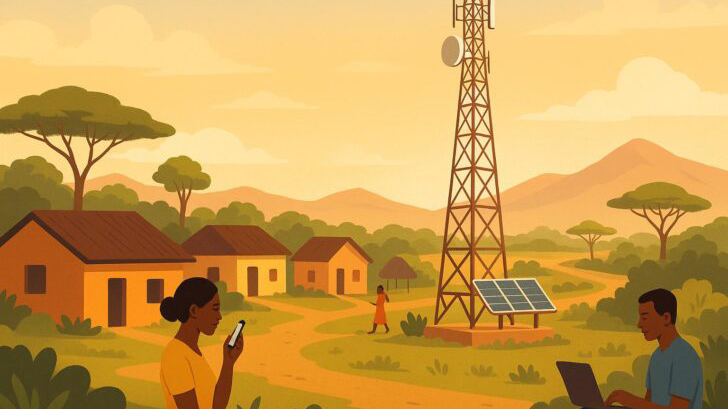
Ehis Asibor is a young man living the dream most people in diaspora aspire to live. He has a great job which enables him to finance tech startups experiments back home. His latest venture is Commissions.ng, an online business accelerator and marketplace aggregator in one. He had launched “Justfor5k” and “Adblabla” in the past. He taught himself PHP and built most of this last startup by himself while still in full employment as an “oil man.”
Before he started his latest experiment, he took the time to visit me to discuss his strategy in detail. He didn’t want this startup to fail as his previous attempts had done. I asked him what the most important lesson was that he had learned from past failures? He put it down to trust. We started to look at the ways to design his product and startup for “Trust”.
Advertisement
After his two previous startup experiments failed to gain traction, he decided to ask questions to know from others what he had done wrong. One of those people he questioned was a relative from Edo state. This relative told him true to “street” fashion “Bros, you dey do this thing like 419. Naim make people no take am seriously…..419 no dey advertise”. The meaning was that people thought his business was fraudulent as there was no advertising. One could not distinguish it from what 419 fraudsters did as they also didn’t advertise themselves. He learned a bitter lesson about visibility and trust from that simple statement.
Ehis decided that for commissions.ng, he was going to seek more publicity than he had done with his other to attempts. I asked him if there was a cheaper way to create awareness without spending too much on visibility and advertising? He decided that an affiliate or agent network would also achieve the same momentum.
Branding
I learned a better lesson recently after we launched our retail agent network. We had tested the name on the agents (our primary customers), but we had not tried the name on the customers of the agents. We discovered that the name “Omnibranches” didn’t resonate with the customers. The agents loved it, but the customers were not fond of it. “MTN” is easy to pronounce but “Mobile Telecommunications Network” is too long. We decided to look for a shorter brand. For Ehis, “Commission” is a simple word and it is easy for his primary customer to understand. Testing it on the streets with the end users is a different matter entirely. We decided to perform design sprints to test everything including the brand.
Distribution
Advertising and visibility are essential, but there are very successful consumer brands in Nigeria who do little or no advertising. They have remained profitable and ubiquitous for only one reason – distribution.
I have always maintained that the best products never win in African markets, it is the best-distributed product that wins. You can do all the advertising, but all your efforts go to waste if the product is not available to the consumer. Advertising reinforces the brand, but distribution reduces the friction of choice or decision fatigue. They are excellent if they go hand in hand. The commissions.ng affiliate and agent model made a lot of sense for distribution, but it needed more coverage to be effective. We looked at partnerships with existing agent networks including Omnibranches.
Customer Service
According to Greylock Partners “Customer Service Is Your Brand.” Things will sometimes not go as planned even with the best-built systems. The response to the customers during a crisis is one of the most important ways to build trust and confidence. Far too many startups make this an afterthought rather than a strategic imperative. A lot of them never survive the first major crisis as the wrong perception spreads much faster. Startup teams start small, and it is typical for everyone to be hands-on. The problem is that a developer might also be the worst person to talk to a customer in times of crisis. You would want to be as human as possible and put yourself in the customer’s shoes.
The new trend in serving customers is “Customer Success.” What it simply means is that you help the customer achieve desired outcomes through your product and services associated with it. We can write a full article on this topic alone. For commissions, there was the need for a dedicated customer success team. We struggled on how to get this to fit a lean budget, but it was crucial and not a choice.
Internal culture of trust
All the elements mentioned above building stones of consumer trust seem to be commonsense approaches but is very easy to get one wrong at the expense of the other and still achieve negative consequence. The most significant element of trust is the internal culture within the company. Companies that have a high level of confidence internally are also able to project that outwardly.
Read more on theguardiannig.wpengine.com/contributors/victor-asemota/
[ad unit=2]






